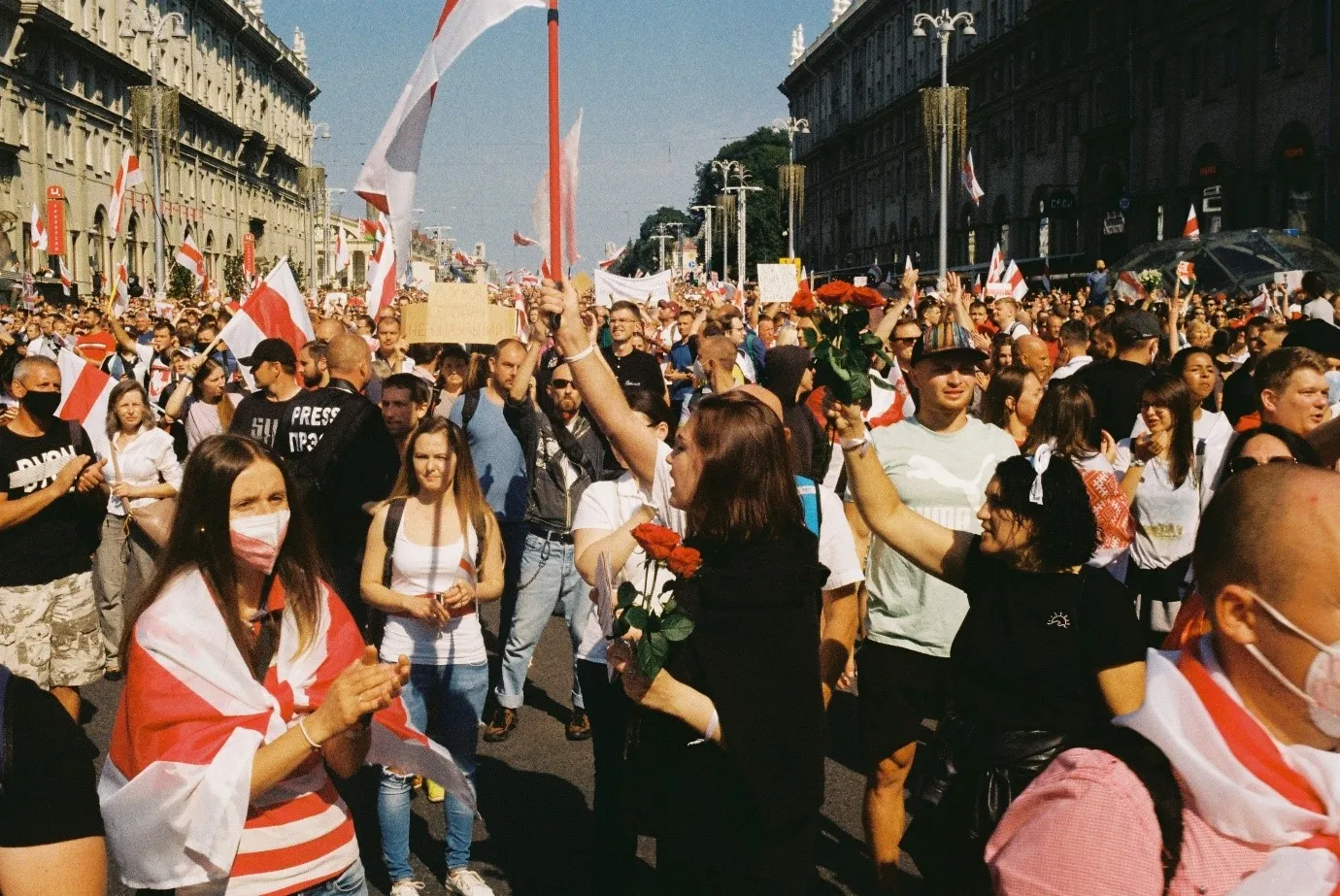Elections and COVID-19: How election campaigns took place in 2020

The COVID-19 pandemic has placed a profound strain on electoral democracy worldwide. Many elections have been postponed, while others have been held with adaptation.
Disclaimer: Views expressed in this commentary are those of the authors. This commentary is independent of specific national or political interests. Views expressed do not necessarily represent the institutional position of International IDEA, its Board of Advisers or its Council of Member States.
One key aspect of the democratic process that has been thought to be affected by the pandemic is electoral campaigning. Campaigns are opportunities for political parties and candidates to spread their ideas about how public policies should change—or remain the same—in the future. Campaigns allow public conversations and deliberation about the future of the country. They allow citizens to weigh up their options when they arrive at the ballot box in a more informed way. Campaigns also play a critical performative role in democracy. They are rituals that signal that the democratic process is underway.
But there is also the risk that campaigns could involve not just the spreading of ideas—but the COVID-19 virus. There have therefore been prominent and ongoing debates about whether the campaign should be restricted to protect public health. Which countries have introduced such restrictions? What alternative forms of campaigning have been adopted? Do campaigns really spread the virus, or is this a convenient opportunity for incumbent governments to clampdown on political activity?
This article helps to address these questions by presenting information on political campaigns around the world in 2020. Data was collected from media and election observation reports from 52 national elections (in 51 countries) in 2020 on how the campaigns operated. This was the vast majority of the countries that held national elections and which also had cases of COVID-19 at the time. This analysis forms part of a series that will cover other parts of the electoral cycle, including health and safety arrangements in polling stations, special voting arrangements; and, international election observation. It forms part of an ongoing study between International IDEA and the Electoral Integrity Project on COVID-19 and elections.
Limitations to traditional campaigning
Roughly half of the countries studied saw limitations on traditional campaigning because of government restrictions on movement and public gatherings. Restrictions included limits on the number of participants allowed to attend public gatherings and complete bans on political rallies or events. In total, 22 of out 51 countries (43 per cent) saw COVID-19 restrictions that limited some freedom of association and assembly during election periods (See Table 1).
For example, ahead of the July 2020 Parliamentary elections, Singapore banned public gatherings effectively by not granting permits for election meetings, including rallies and gatherings at assembly centers. Access to nomination centers was also restricted. In Montenegro, public gatherings were limited to 100 people, and rallies were banned ahead of the August 2020 Parliamentary elections. In Jamaica, ahead of the August 2020 General election, political motorcades were not allowed, meetings were limited to 20 people, and canvassing was restricted to five people per group. In Jordan, gatherings were limited to 20 people, and rallies were banned ahead of the November 2020 General election. Furthermore, candidates and supporters were expected to refrain from any party celebrations and respect a four-day nationwide curfew directly after the vote.
Door to door campaigning was often still allowed. In Singapore this could take place, but with no more than five people per group. Each group was also required to keep a1m distance from other groups, should wear masks, needed to keep their interactions brief and avoid shaking hands. A restriction of five persons per campaign group was also in place in Jamaica.
Other health measures that have been introduced include temperature checks for campaign events (Myanmar), sanitation of indoor venues (Chile), a maximum time duration during gatherings (Sri Lanka), as well as dedicated or sanitized microphones (Myanmar, Sri Lanka), among others.
Were restrictions observed?
Restrictions may have formally been put in place, but Election Observation and media reports have noticed that large scale in-person rallies have sometimes gone ahead despite government limits. In Myanmar, the limit of 50 people who could be present at a rally were not complied with, nor enforced by the authorities. Also according to ANFREL, guidelines on social distancing and usage of face masks was not respected during campaign activities. In Moldova, restrictions allowed no more than 50 people to join public events, something that was not always respected by several candidates. The OSCE/ODIHR report about the elections in Poland said that just before the second round, political campaigns organized many direct meetings with voters that attracted large gatherings, during which COVID-19 restrictions were not respected and poorly enforced. The Citizens Engagement Platform Seychelles (Ceps) noted that health regulations were not entirely appreciated by candidates and activists during the campaigns. Moreover, in Malawi, mass campaign rallies leading up to the presidential election were reported despite that gathering was restricted to 100 people.
The move to remote campaigns
With these restrictions in place, many political parties and candidates did, however, campaign through social media and other online platforms to get their policy options to resonate with prospective voters. Indeed, the pandemic may have helped accelerate a shift in campaigning in this direction. In Singapore, parties discussed their plans through e-rallies on Facebook, YouTube, Instagram, and TV and radio. In Kuwait, social media was used extensively, particularly Twitter, Zoom, and WhatsApp, as in-person meetings at 'diwaniyas' (party reception areas) were banned. In the USA, ahead of the November 2020 Presidential election, both the republican and democratic parties made use of social media and even held party conventions online before adopting non-traditional rallies such as drive-in events and those held at airports.
Non-digital mechanisms have also been used during the pandemic by parties and candidates to convey their message, especially in countries where there is a lack of sustainable internet penetration. Examples include short-message service (Mali), telemarketing (USA), postal mailings (Serbia), and TV, newspapers, and radio talks show and political advertising (Chile, South Africa, Dominican Republic, Poland, Seychelles, among others). Some of these—such as TV, newspapers and radio shows—are likely to be a continuation of pre-existing campaign practices.
Are campaign events safe?
Have all these reforms been necessary to protect public health? Or are they disproportionate restrictions on political freedoms? There have been some reports claiming that coronavirus spread because of elections held in 2020. There needs to be caution in taking this evidence as-read. Without a robust methodology which can link campaign events directly to transmission separate to ordinary community transmission, it is difficult to know when and where the virus was in fact caught. Media reports could also be less reliable in this respect, focusing on the anecdotal rather than aggregate picture—and may be more likely to spread misinformation. Nonetheless, the reports provide some useful anecdotal information suggesting campaign events can be sources of transmission. For example, exceptions from one study suggested that 30,000 people were infected and expected that around 700 would die of COVID-19 due to the 18 outdoor rallies organized by the Trump campaign. In Burkina Faso, according to a local newspaper, the large gathering during the electoral campaigns could also be attributed to an increase in coronavirus cases.
Exceptions at the subnational level include Malaysia's Sabah state election, where instructions for campaigning during the pandemic from the Electoral Commission were not adhered to during campaigns. After the elections, the Prime Minister conceded that the recent spike in COVID-19 could be attributed to the political campaigns. Ten politicians and three election officials tested positive for coronavirus after the elections. According to media reports, 20 candidates contesting in the November 2020 Brazil Municipal elections died of COVID-19. In France, both Le Figaro and France Télévisions reported stories about the election and the further spread of coronavirus. Some candidates and polling officials had either shown symptoms, been diagnosed as having the virus, or passed away shortly after the election due to the virus. While it is difficult to know the exact total number of candidates who stood for election in each of these elections, it is likely to have been in the thousands in each country.
The balancing act between public health protection and democratic discussion and contestation is, therefore, an important one. Some adaptation of the electoral process is clearly needed to preserve human life given the known risks. However, freedom of expression is crucial to campaigning and the ability of ideas and information to flow during the electoral process should be restricted as minimally as possible. Given that different aspects of the electoral campaign has a different focus in different countries—bespoke rather than ‘one sizes fits all’ approaches will probably be needed.
Table 1. Limits or bans on traditional campaigning ahead of elections in 2020 by country
|
|
Country |
Limit on number of participants at public gatherings |
Burkina Faso (50), Croatia (10 indoors), Guinea (100 for 18 October 2020 election), Iceland (100), Jamaica (20), Jordan (20), Malawi (100), Mali (50), Moldova (50), Montenegro (50 indoors and 100 outdoors), Myanmar (50), North Macedonia (1,000), Poland (50-150), Romania (20 indoors, and 50 outdoors), Serbia (50-500), Sri Lanka (100), USA (depending on the state) |
Political rallies or events banned |
Croatia (ban on holding public events and large gatherings), Dominican Republic (rallies banned), Iran (candidates barred from campaigning on the streets), Jamaica (motorcades banned), Jordan (banned election rallies), Kuwait (rallies banned), Montenegro (public gatherings and rallies banned), Poland (public gatherings were officially prohibited) Serbia (Campaign suspended), Singapore (rallies banned), Seychelles (rallies banned), USA (depending on the state) |
No information found on campaign limitations or bans |
Algeria, Belarus, Belize, Bermuda, Bolivia, Burundi, Central African Republic, Chile, Cote d'Ivoire, Czech Republic, Egypt, Ghana, Georgia, Guinea (22 March 2020), Israel, Italy, Kyrgyzstan, Liberia, Lithuania, Mongolia, New Zealand, Niger, Russia, Tanzania, South Korea, St. Vincent and the Grenadines, Suriname, Syria, Switzerland, Trinidad and Tobago, Venezuela |
Source: Authors, constructed using International IDEA, EOM and media reports and EMB and country data.
Note: Countries included more than once in the table had both limitations and bans on rallies during different periods. This table is based on a dataset of 51 countries that held 52 direct national elections and referendums during the period 21 February until 31 December 2020. All of the countries included in the dataset had one or more confirmed cases of COVID-19 infection. The dataset does not cover national by-elections.
Main findings on campaigns
|





